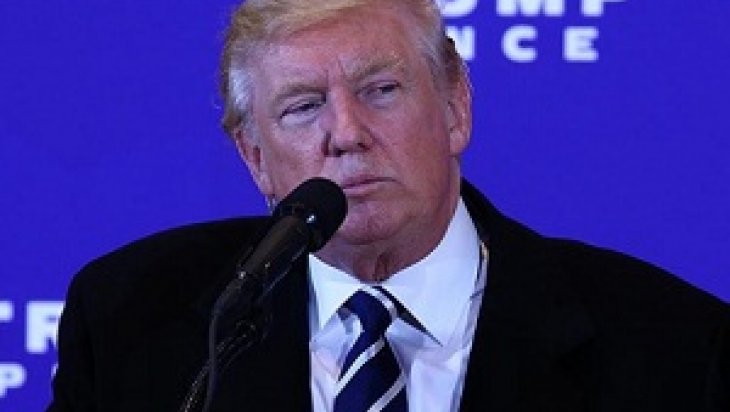Possible Impacts of Trump's Economy Policy Proposals on the Middle East and North Africa

The relations of the United States (US) with the countries of the Middle East and North Africa (MENA)are of course multi-dimensional. The security of the world energy resources is undoubtedly the most significant of these dimensions for the US. The security of allies and ruling powers within the MENA countries and especially the fight against terrorism in the 2010s are the key elements that determine the US foreign policy approach to the MENA countries.
Looking at Trump's election bulletins, it is possible to classify possible economic policy implementations within the framework of fiscal policy that can be largely called Keynesian in contradiction to the political ideology Trump represents. In this context, new infrastructural investments and renewal of existing infrastructure, and income tax regulationsand tax reductions constitute the two main axes of domestic economic policies. The protectionist foreign trade policy is the third fundamental axis of the proposed economic model. Another crucial aspect of the economic model for the Latin American and the MENA countries which intensively send immigrants to the United States is the immigration policy.
Costs of the Possible Consequences of Proposed Policy Approaches
Although it is arguable if the plan to finance the costs of the proposed policies through providing tax reductions to the potential investors is feasible, Trump's economic plan based on policy of new infrastructural investments and renewal of infrastructure is estimated to cost 1 trillion dollars over the next decade. Given that the US gross domestic product (GDP) is approximately $ 18 trillion, and more importantly, the GDP of the MENA is $ 3.1 trillion, the size of this cost becomes clear. The most significant characteristic of the infrastructure investments is that income effect occurs in the short run, the production capacity effect occurs in the medium and long run. It is expected that this income growth in the US economy will increase the amount of imports that the US will carry out from its trading partner countries.
However, Trump made propaganda during the election processthat measures would be taken to restrict foreign trade, especially with the countries the US is running foreign trade deficits. It is obvious that such an implementation will prompt trading partner countries of the US to react by applying a similar policy. Such a development may have two possible impacts on the MENA economies: The first of these impactsmay be positive andthe countries whose trading volumes with the US declines, especially those with foreign trade surplus with the US such as China which would be the target of the American foreign trade restrictions, increase their foreign trade with the MENA countries. The second is that as the shrinking of the world trade could have a negative impact on the global GDP, exports of the MENA countries, especially the exports of energy resources, could be negatively affected. At the same time, decline in global production will put a downward pressure on oil and natural gas prices, which will have negative influence on energy exporting MENA economies.
The implementation to reduce deregulations concerning financial system will constitute another significantelement of Trump's economic policies for the MENA countries such as Saudi Arabiathat is an exporter of energy resources and that invests its large financial wealth gained through this way in financial assets in financial markets in the US. Expanding financial markets together with rising interest rates in the US will increase the demand for financial funds of the MENA countries. Even though it means higher financial gaining, given the fact that the MENA countries are in need of large investments to realize their economic development, reduce unemployment, especially youth unemployment, eliminate poverty, and unfair distribution of income and that these funds can finance the investments in these areas, this development can be said to adversely affect the MENA countries.
The relations of the US with the MENA countries are of course multi-dimensional. The security of the world energy resources is undoubtedly the most important among these dimensions for the US. The security of the allied countries and ruling powers within the MENA countries and especially the fight against terrorism in the 2010s have formed the key elements that determine the US foreign policy approach towards the MENA countries. On the other hand, three important factors, the discovery of the shale oil in the US in recent years, the fact that only 20% of the total oil demand of the US is metfrom Saudi Arabia (about 15%) and Iraq (about 5%), and the sharp fall in oil prices, have decreasedtheenergy resource based importance of the MENA countries. However, China is the biggest importer of the MENA energy resources. On the other hand, the economic relations between China and the MENA countries increasingly includeother goods and services in addition tothe energy resources, and this process raises the importance of the MENA countries for the US because the US regards China as one of its greatest economic and military rivals. This finding makes it easy for us to argue that Trump's globalization, foreign trade protectionism, and immigration policies will include many exceptions for the MENA countries. Besides, anothercrucial reason why the MENA countries,especially Saudi Arabia, are of great importance to the US and Trump is that Saudi Arabia sells its oil in dollar, which plays a major role in protecting the reserve currency position of dollar.
Today, the total number of immigrants in the world has exceeded 60 million. One of the important sources of international migration is the MENA countries. However, as noted above, much of the immigration to the US comes from Mexico and otherNorth and South American countries. The situation the world today faces regardingimmigration is so huge that it cannot be settled by Trump's wall-building and deportation proposals, and it is a necessity for every country in the world to contribute to the solution. However, the Syrian crisis has become a big humantragedy,and one of the most important actors for the solution inSyria and forthe Syrian immigration problemis the US. The US needs to contribute to the immigration problemboth by accepting more immigrants andby providing all kinds of support to Turkey, Jordan and Lebanon thathave taken great responsibilityforimmigration problem. On the other hand, Trump's solution to the Syrian problem is no different from the solution to the Mexican immigration problem in the United States; Trump,who suggests building a wall along the Mexican border and making the Mexican government pay for the cost, alsosuggests, in a similar way, creatingsafe areas in Syria and preventing the Syrians from emigrating from Syria and making the rich Gulf countries pay for the cost of the safe areas. Today, however, 3 million Syrian immigrants live merely in Turkey.
It is imperative that we start a new paragraph for Iran while discussing the effects of Trump's economic policies on the MENA. It should be emphasized that after the Nuclear Deal signed in 2015, the possibility for Iran of restarting and developing economic relations with the US has been considerably reduced in the Trump era. Even if an embargo period is not resumed, by also influencing other European countries, Trump's approach can slow the opening process of Iran to the West and lead her to develop more relations with Russia. The worst scenario regarding relations with Iran is of course the rupture of relations, end of the Nuclear Deal, and return of Iranto the nuclear program, further increasing the tension in the region. In this context, the idea that Trump will demand a certain price from Saudi Arabia in exchange for the security the US army provides may also suggest that the existing military and economic agreements the US has signed with Saudi Arabia and other countries willbe brought to the agendabackand this process will increase the tension in the region. It is also possible to say that in the Trump era the US contribution to the settlement of the Palestinian question couldbecome weaker and the Palestinian peoplewho are really in a difficult economic situationwould be negatively affected.
From a more macro perspective, it can be argued that in the Trump era, the political and economic relations of the US with the MENA countries would be weaker and that Britain would diminish her relations following the United States, thus Russia and China and, to some extent, France and Germany will strengthen their relations with MENA countries. In this framework, it is possible to say that Turkey can play a crucial role in provision of stabilityand play a part in the regionin terms of economyand politics.








